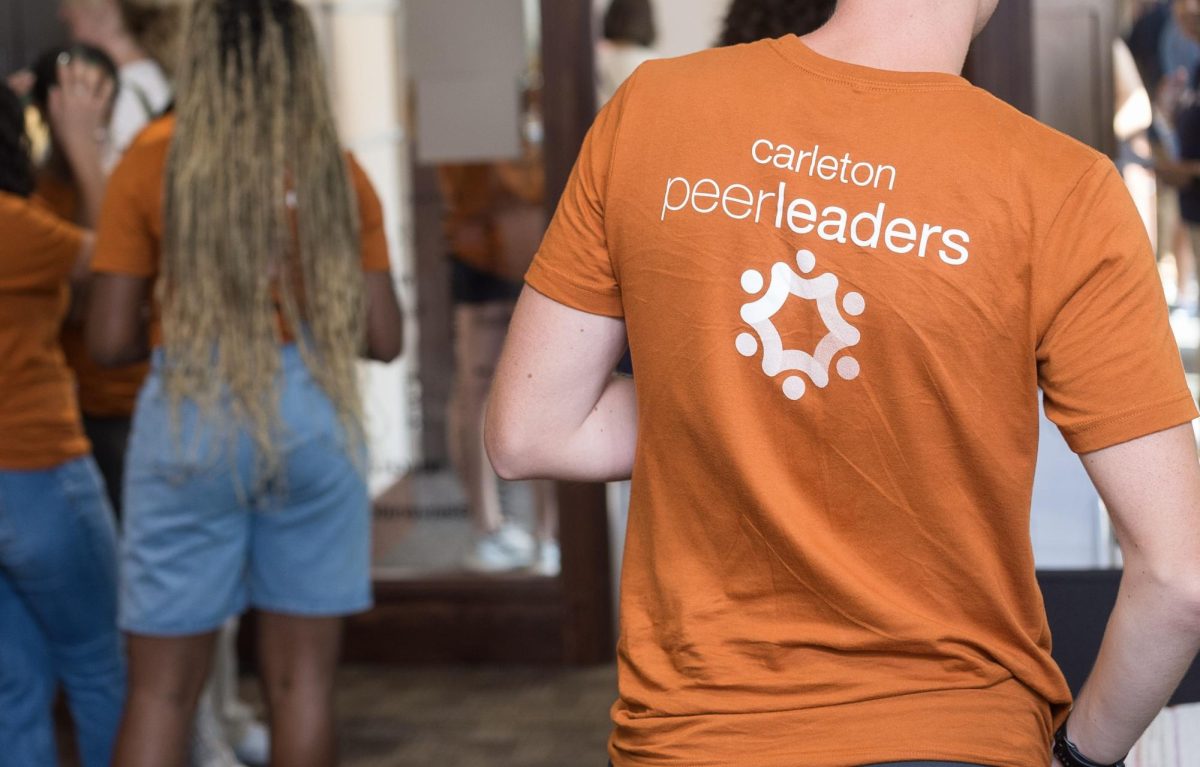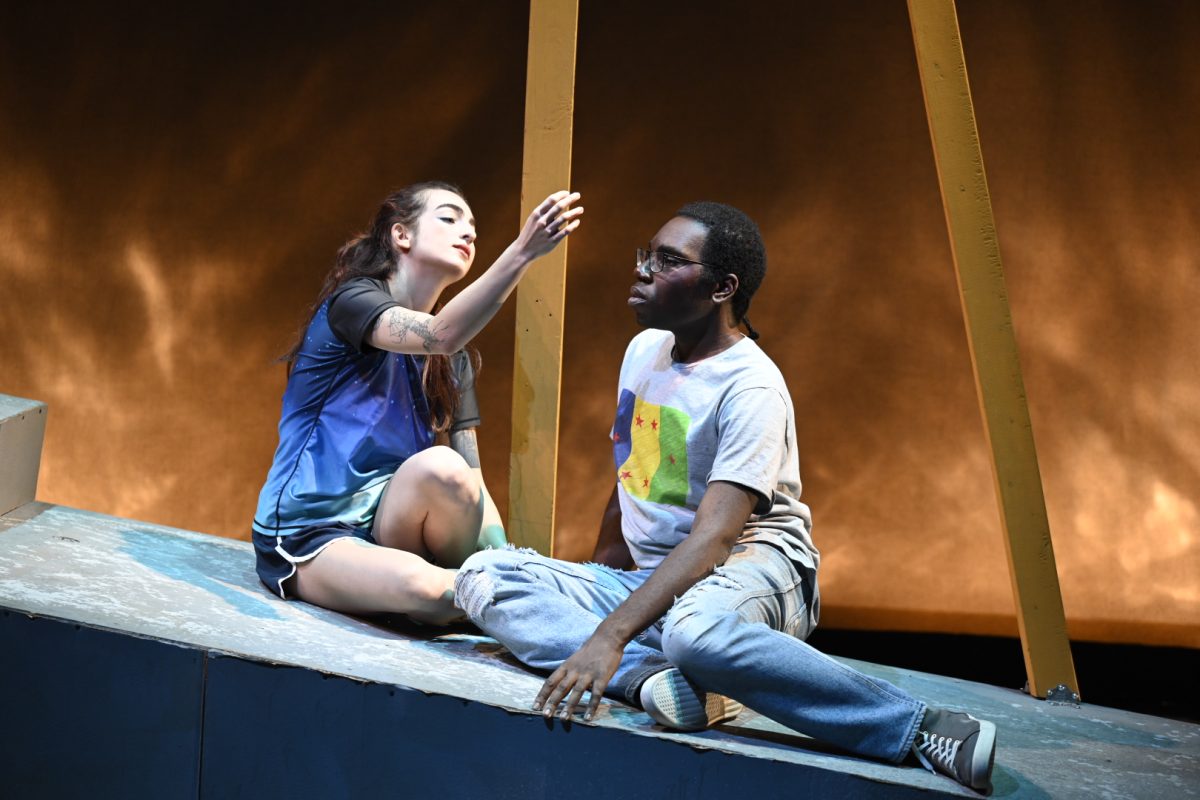Celebrating its 20th anniversary this term, Carleton’s Gender and Sexuality Center (GSC) provides the campus with resources and support for its queer students. Its familiar presence under the leadership of current director Danny Mathews is a testament to the years of strife it took to reach this point; in an era where it is generally safer to be openly queer than in previous decades, the GSC’s place in the Division of Student Life has been hard-won.
“October is LGBTQ+ History Month, and the GSC has been recognizing this year’s programs through the theme of LEGENDARY CHILDREN: Our Past, Present & Futures.” Director Danny Mathews said. “As queer and trans people, we are all legendary, and we stand on the shoulders of so many other legendary children who came before us.” The Center’s history comprises the resistance, persistence and achievement of Carleton’s queer and allied students, and placing its current mission on campus in the context of its history illuminates the strength of queer Carls through the decades.
Prior to the GSC, the beginnings of organized queer life at Carleton’s were much more clandestine out of necessity. 1972 marks the first open organization of queer Carleton students through the Northfield Gay Liberation Front, “one of the nation’s first publicly-run college student LGBT groups,” The NGLF “held periodic meetings at Carleton to address gay issues on campus and to provide coming-out support for Carls and Oles alike,” according to the “Out After Carleton” webpage. The next most significant organization of queer Carleton students took shape in 1992, with the founding of that same Out After Carleton group—an alumni network of support and community for graduated queer students.
Following Out After Carleton’s establishment in 1992, progress for queer resources on campus came together more quickly than the speed which previous decades prohibited. The 90’s would mark the establishment of institutionally-handled funds for queer students, the campus LGBT council, the hiring of an LGBT coordinator, and the beginnings of plans for the GSC. To jumpstart these changes, the next year in 1993 saw the establishment of the Human Sexuality Endowment Fund — a “generous gift from Ruth Harkison Waterbury ’57 and David Waterbury, who wished to improve the campus climate for LGBTQIA+ students.”
“The fund was overseen by the chaplain at the time,” said Chaplain Rev. Fure-Slocum. She and her predecessors handled the HSEF to provide queer students at Carleton with community and the arts by bringing in programs for speakers and musicians. The still-existing fund’s mission statement includes “funding for guest speakers, travel to conferences and events, the purchase of library books, social events, campus-wide awareness campaigns, and support groups” for current Carls.
Having begun her position in 1997, Fure-Slocum describes the history of the chapel’s role at the time “as a neutral player for queer students, somewhat separate from the institution.” Though the Chapel passed the financial role in fostering queer community to the GSC and LGBT Council after their formation, the chapel still recognizes its history and commitment to its LGBT members through student organizations such as Queer in Faith and an annual service in October centered around queer experiences.
When the LGBT Council was formed in 1998, Fure-Slocum said that “the plan was to have separate student, faculty, and staff groups to bring their ideas to the larger council… Those were years when people needed to be careful… given the previous centuries of history… especially if they were non-tenured faculty or staff who felt like their jobs might be at risk, and students who may or may not have wanted their faculty to know they were LGBT. It was a cautious time.”
In 1998, Out After Carleton held a “family reunion” on campus, where “alumni had a chance to meet with current students, faculty, and staff and were dissatisfied with the campus climate for LGBTQIA+ students.” Fure-Slocum described the event as “very hard-hitting, some horrible stories told what Carleton was like in previous decades for LGBT folks,” including the expulsion of queer students. After this chance to see what progress Carleton had made and what still needed to be done, alumni “petitioned the administration to address the needs of LGBTQIA+ students and collaborated with the students, faculty, and staff already working on the administration to create Carleton’s first LGBT Advisor position.”
The LGBT Council began planning for greater change on campus, starting with the presence of staff. A 1998 copy of “Minutes from the LGBT Council” describes its members as having “decided that hiring a part-time staff person for LGBT concerns was [their] highest priority.” Danny Mathews described that “in 2001, Carleton invested [a quarter] of one full time staff member’s duties to staffing and programming for LGBT students on campus.” This staff member split duties between their job as an LGBT Student Advisor position and their job as a hall (area) director. “Twenty years later, our staffing is much more robust with two full time professionals serving as director and assistant director, along with an annual cohort of peer leaders known as GSC Associates delivering programming, support, and resources to campus surrounding the diversity of gender and sexuality.”
The GSC itself was created in 2001, 20 years ago. The LGBT Council — its distinct branches no longer separate — made plans for Carleton to join other American colleges in their formation of Gender and Sexuality Centers, in order to give LGBT students a space of their own.
Danny described the many roles of the GSC as it has been called upon by a campus in need. “As often happens in small communities like Carleton, the Gender & Sexuality Center served many roles on campus over the years. Sometimes viewed as a women’s advocacy space, the GSC historically managed sexual misconduct and prevention work before the installation of the college’s Title IX Coordinator and SMV Coordinator.With more time and focus available, the GSC clarified its mission and vision in 2018 to provide programs, resources, and support for all students regarding the diversity of gender and sexuality while intentionally centering the needs of LGBTQIA+ and questioning students.”
“As the world and our campus figures out what this new normal can and may look like, the GSC is committed to continuing to be a soft place for students to land – where they can be themselves, feel validated, and understand they are important contributors to our knowledge community at Carleton. Our message will always be, “Everyone is welcome. Come as you are.” We hope that folks take advantage of our invitation and stop by Clader House on the corner of Second and Union to say ‘hi!’”














